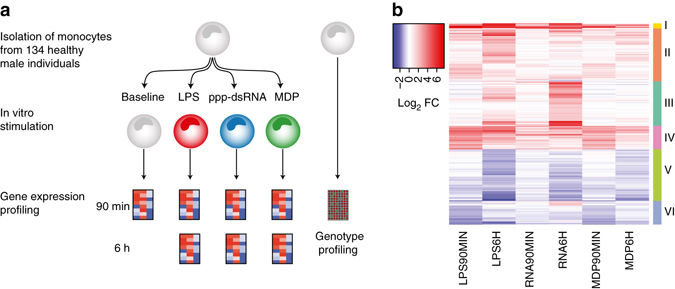현재 위치:홈 > 뉴스현황 > Press Events > Genetic Risk Factors...
저자: 업로드:2017-08-17 조회수:
It is widely recognized
that people respond differently to infections. This can partially be explained
by genetics, shows a new study published today in Nature Communications by an international collaboration of
researchers from Germany and
the United States.
A collaborative team of
investigators from the University of Bonn, Germany, and the New York Genome
Center has just published
findings that map several genetic variants that affect how much gene expression
changes in response to an immune stimulus.
Results from the new study, published in Nature Communications in an article entitled “Genetic Regulatory Effects Modified by Immune Activation Contribute to Autoimmune Disease Associations”, offer novel insights into the genetic contribution to varying immune responses among individuals and its consequences on immune-mediated diseases.
“Our defense mechanisms against microbial pathogens rely on white blood cells that are specialized to detect infection," explained co-senior study investigator Veit Hornung, Ph.D., chair of immunobiochemistry at the Ludwig-Maxmilians-Universität in Munich. “Upon encounter of microbes, these cells trigger cellular defense programs via activating and repressing the expression of hundreds of genes.”
“We wanted to understand how genetic differences between individuals affect this cellular response to infection," added co-senior study investigator Johannes Schumacher, Ph.D., a research scientist at the Institute of Human Genetics within the University of Bonn.

The human immune system plays a central role in autoimmune and inflammatory diseases, cancer, metabolism, and aging. The researchers discovered hundreds of genes where the response to immune stimulus depended on the genetic variants carried by the individual.
"These genes include many of the well-known genes of the human immune system, demonstrating that genetic variation has an important role in how the human immune system works," noted lead study investigator Sarah Kim-Hellmuth, Ph.D., a postdoctoral researcher at the New York Genome Center. "While earlier studies have mapped some of these effects, this study is particularly comprehensive, with three stimuli and two-time points analyzed."